Homebuilders Are Not Overbuilding, They're Making Up for Lost Time

You might have heard that there are currently more brand-new homes available than usual. Today, roughly one in three homes on the market are newly built. If you're curious about what this means for the housing market and your own move, here's what you need to know.
Why This Isn’t Like 2008
People remember what happened to the housing market in 2008, when one of the factors contributing to the crash was an excess of homes for sale. Although only part of that oversupply was due to builders, the lasting impact is that some people still feel uneasy when they hear about an increase in new home construction.
Although the supply of new homes has increased this year, the data indicates there's no need for concern. Builders are not overbuilding; they are merely catching up.
The graph below, utilizing Census data, illustrates the number of new houses built over the past 52 years. After the 2008 crash, there was an extended period of underbuilding (highlighted in red). It wasn't until recently that we finally reached the long-term average for annual home construction.
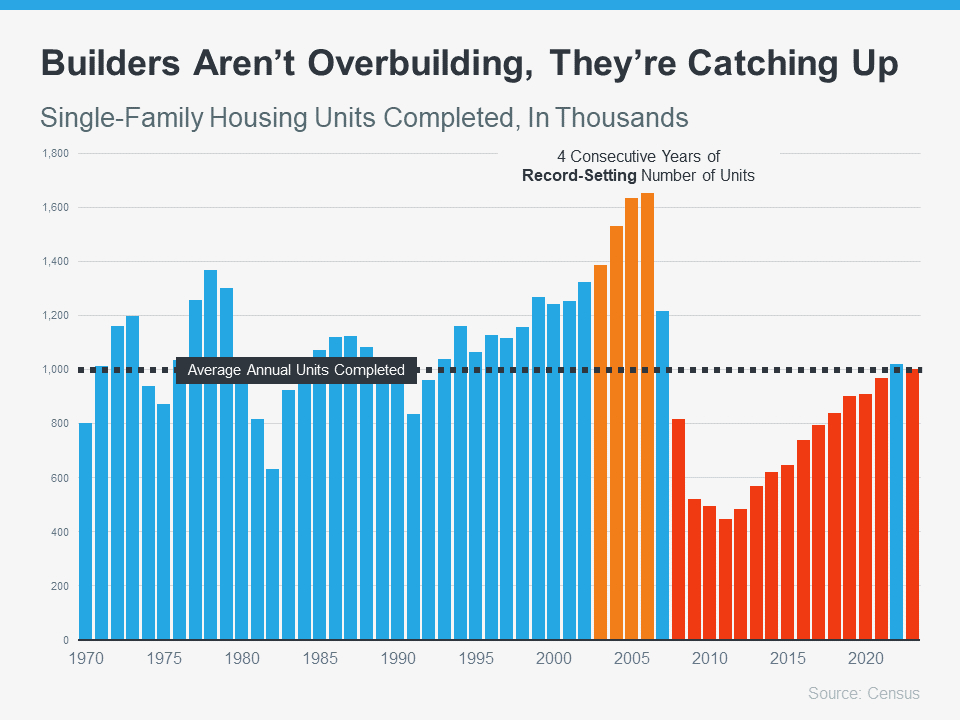
This indicates that despite the recent increase in new builds, there won't suddenly be an oversupply of homes for sale. The gap created by over a decade of underbuilding is too large to fill quickly. If you're still concerned that builders are overbuilding, here's something else that should put your mind at ease.
New Home Construction May Be at Its Peak for the Year
The latest data from the Census on housing starts (homes where construction has just begun) and permits (homes approved for future development) indicates that builders are currently slowing their pace. Why is this happening?
They are reacting to the still high mortgage rates and their impact on buyer demand. Essentially, they are appropriately scaling back in response to market conditions. As an article from HousingWire explains:
"Despite a significant housing shortage nationwide, homebuilders are finishing their existing projects and not seeking as many permits for new single-family homes."
Builders are mindful of the repercussions of overbuilding during the crash and are taking precautionary measures by scaling back their activities.
You May Have More Options Now Versus Later
If you're thinking about buying a newly constructed home, here's what this means for you. With builders obtaining fewer permits and starting construction on fewer new homes, we may have reached the peak of new home construction for the year. This doesn't imply a complete halt in new home building—rather, the pace is slowing down, which will affect what becomes available on the market later this year. As Lawrence Yun, Chief Economist at the National Association of Realtors (NAR), explains:
"With the recent decreases in housing starts, we can expect home completions to gradually decline over the next six months."
Therefore, if you're prepared and in a position to buy now, you might discover a wider array of newly constructed homes available compared to later. This could serve as a compelling reason to begin your search promptly.
Make sure to collaborate closely with a trusted local real estate agent throughout your journey. An agent can offer valuable insights into builder reputations and other critical factors relevant to your market. If new construction options are limited in your area, they can also direct you to nearby areas where more opportunities may be available.
Bottom Line
While new home construction currently constitutes a larger portion of the market than usual, this is not a negative development. Builders are not overextending themselves and are heeding market signals to prevent a recurrence of the errors from 2008. If you are considering purchasing while new home options are plentiful, it's advisable to contact a trusted local real estate agent.
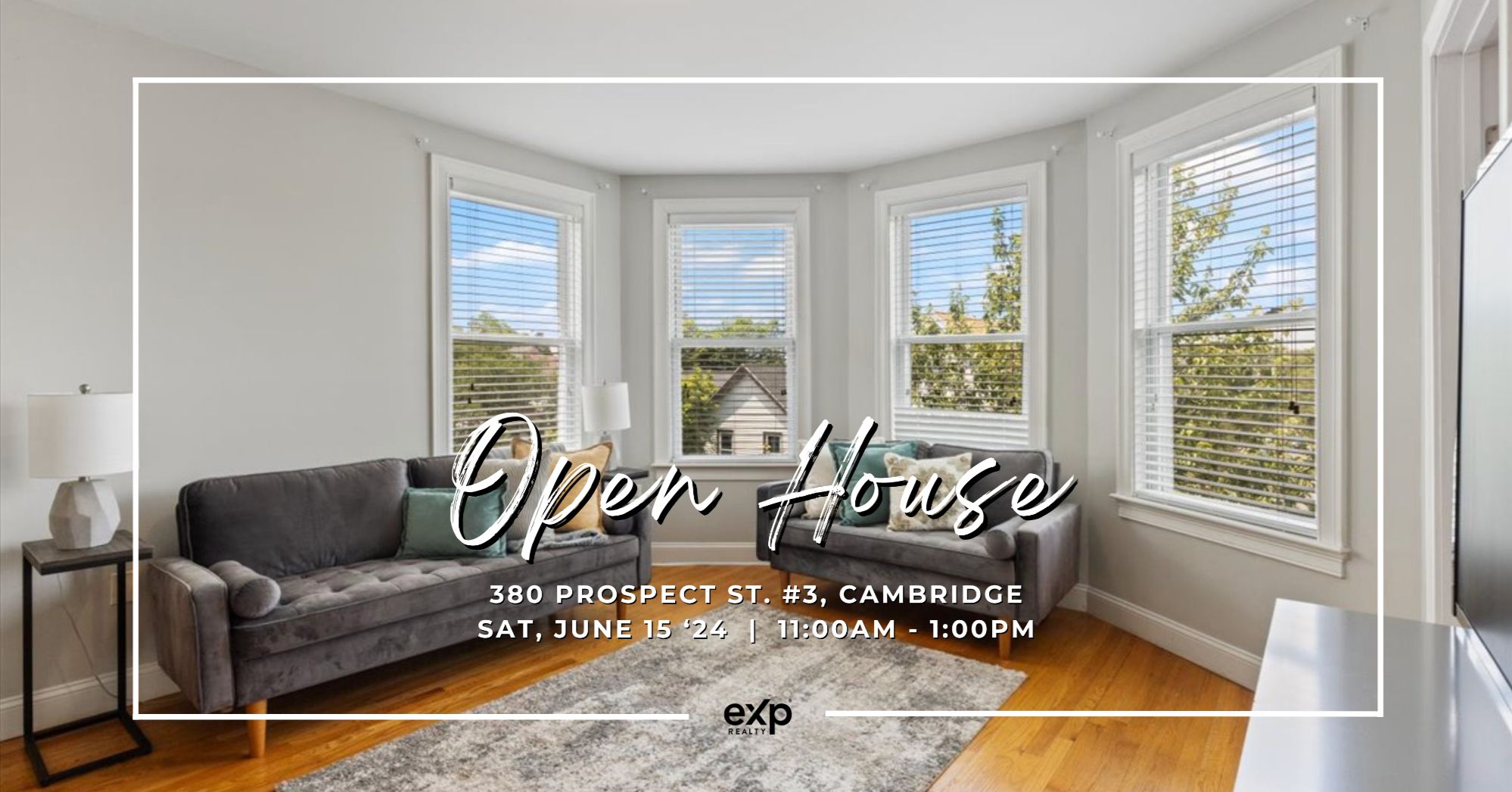
Categories
Recent Posts
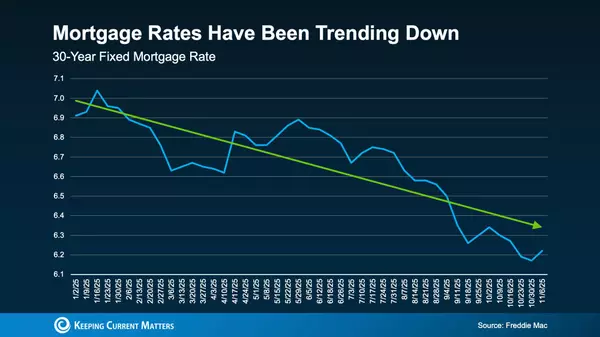
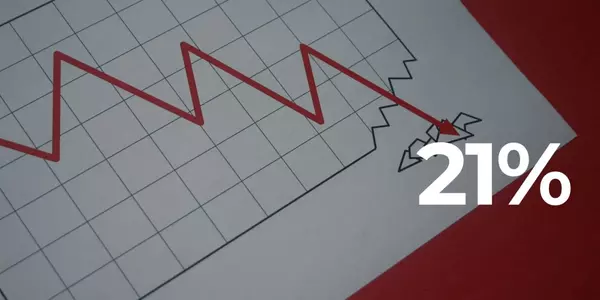
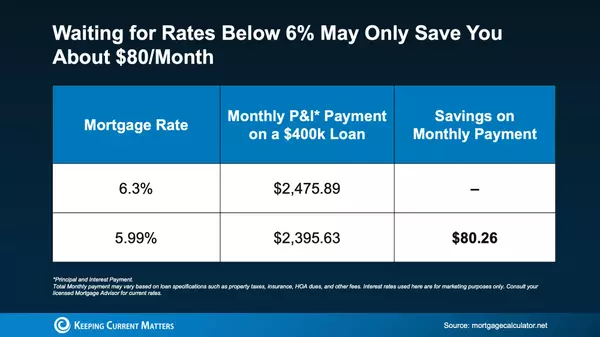
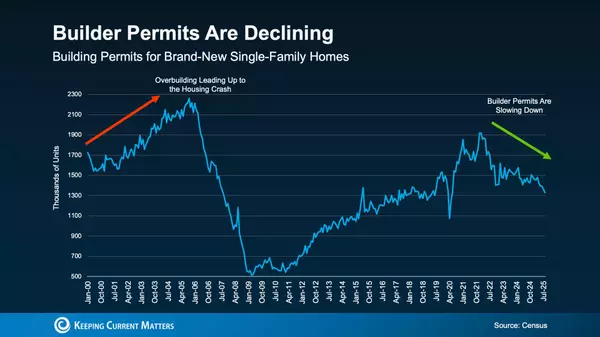
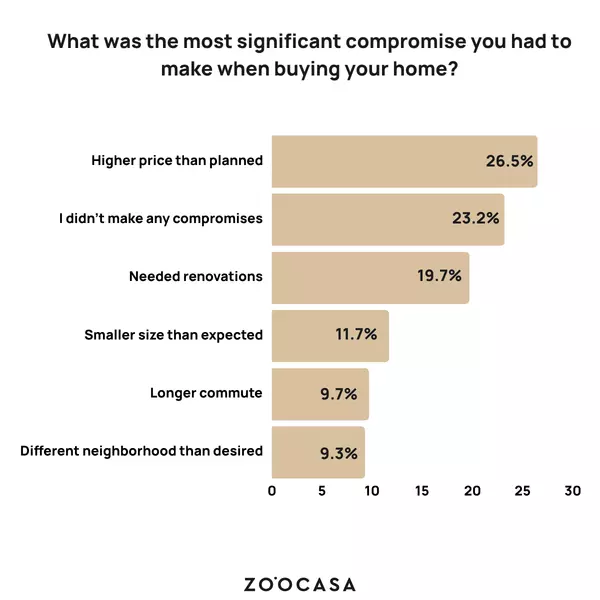
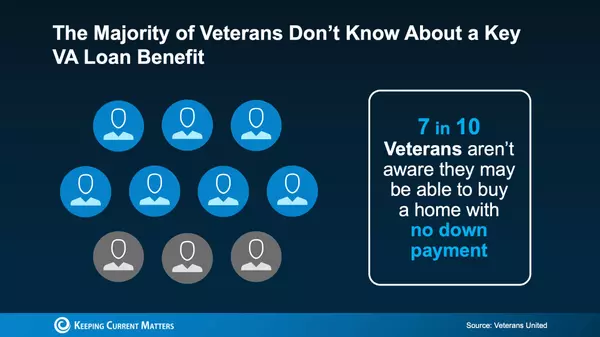
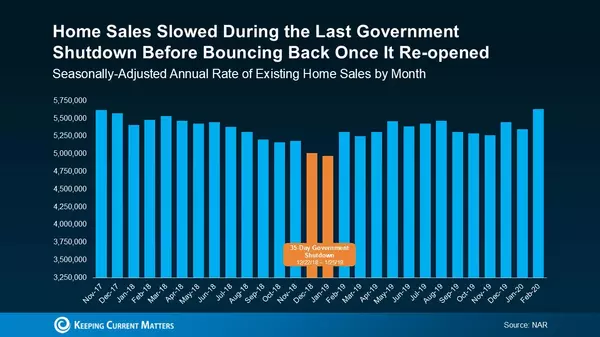
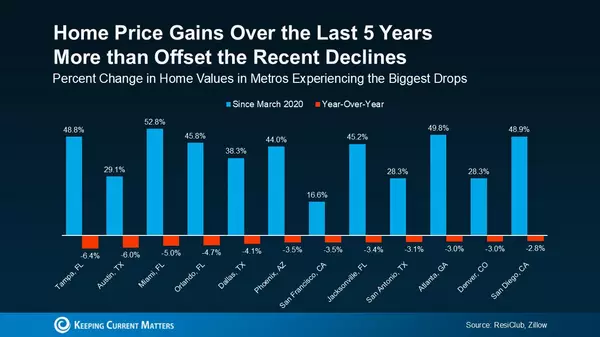

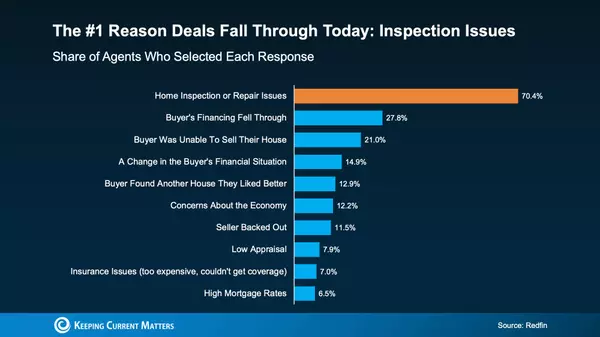
GET MORE INFORMATION


